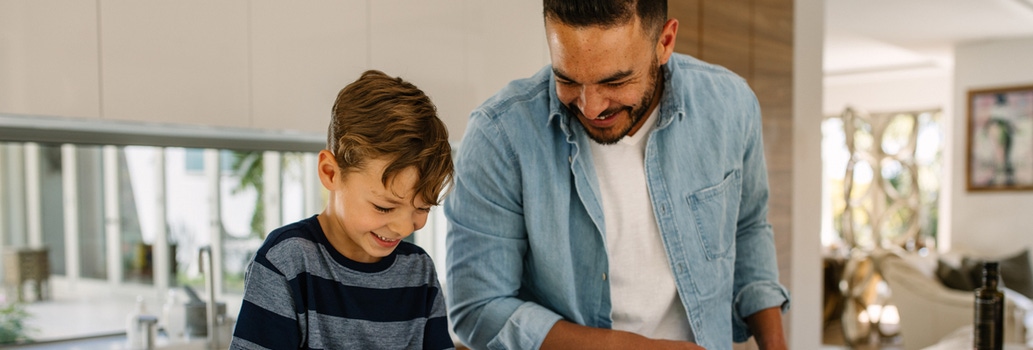
Easy habits to transform your family's health and happiness
We all want the best for our children, but being endlessly busy and bombarded by conflicting information and advice can make raising healthy kids seem like rocket science. And did we mention the guilt? That’s why it’s little comfort to hear that while today’s kids might be healthier than ever before, the gains of the last century are at risk as new health issues emerge—from obesity to mental health issues and non-communicable diseases like type 2 diabetes.
But setting your kids up for a long, healthy and happy life doesn’t have to be overwhelming; in fact, it’s simpler than you might realise. With Sanitarium’s support, a University of Notre Dame report examines what 21st century kids need to be able to thrive. It’s called Little People, Big Lives and it calls for a more wholistic approach to children’s health and wellbeing. Here are some of the recommendations along with some simple ways to put them into action:
1. Safety, Security, Love and Belonging
First and foremost, children want to feel cared for and loved. Love, security and safety are considered the most prominent aspect of wellbeing. When children feel emotionally supported in loving relationships, they become more confident and develop a healthy sense of self. Learn more...Why not try: Sharing stories every day. Encourage your child to tell you about their day in an interpretive way—via a dance or song that they can make up and perform for you.
2. Healthy Eating and Drinking
You are what you eat has a lot of truth to it, and a healthy diet is key for the strong growth and development of your kids. But, your children may not feel that eating healthy is always the fun and tastiest option. Learn more...Why not try: Getting the kids in the kitchen once a week. Use it as an opportunity to talk science (why do cakes rise?) nutrition (choosing a rainbow of colours), measurement (how many grams in each dish), and even cultural studies (pick a dish that’s relevant to your culture, or from around the world to broaden their horizons). They’ll also love spending quality time with you too.
3. Active Play
This is a big part of your child’s development, with physical, behavioural, social and emotional benefits. With the rise in screen time, encouraging your kids to play outside, or move incidentally, is more important than ever. Learn more...Why not try: Heading out for an evening walk after dinner. Or, taking alternative transport solutions to school—if you have to drive, park a block away and walk the rest. Challenge the kids to get there in a range of ways—hopping, skipping and jumping are fun and good ways to burn some energy.
4. Healthy Sleep
Just like us, kids need adequate sleep to grow and function effectively. Poor sleep negatively impacts a child’s cognitive performance, memory, behaviour and sleep performance. Learn more...Why not try: Making bedrooms electronic free spaces. A nice sleeping environment is important in preparing the body for rest. Get rid of devices, have regular bedtime routines, and keep the room quiet, dark and at a comfortable temperature.
5. Positive Screen Time
Even though our kids are spending a lot of time on their devices, technology is a big part of our world and it’s important to show your kids how you can use it positively. Learn more...Why not try: Scheduling weekly family movie night. Positive behaviour can be rewarded by allowing your kids to choose which movie is watched, or which healthy snacks the family enjoys during the show. This will foster a sense of empowerment during very important family time together.
To download a full copy of the Little People, Big Lives report and learn more about the five action areas visit www.sanitarium.com.au/biglives.

The latest nutrition advice, plus health and wellness tips delivered to your inbox monthly